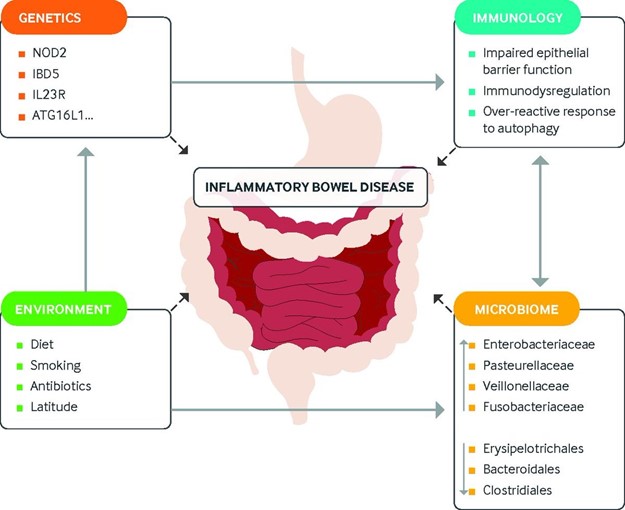Therapeutic management for an adolescent with Crohn's Disease includes which treatment?
Dietary restrictions to reduce calorie and fat intake to lose weight
Keep the child in isolation to prevent spread of the infection.
Control the inflammatory process to reduce or eliminate symptoms.
Restrict foods containing gluten to control the symptoms
The Correct Answer is C
Crohn's Disease is an inflammatory bowel disease that can affect any part of the digestive tract. The goal of treatment is to control inflammation, relieve symptoms, and prevent complications. To achieve this, the healthcare provider may prescribe medication such as anti-inflammatory drugs, immunosuppressants, or biologic therapies that target specific inflammatory pathways.
These medications can help reduce inflammation and improve symptoms.
In addition to medication, nutritional therapy may also be recommended to help manage Crohn's Disease. However, dietary restrictions to reduce calorie and fat intake to lose weight or restrict foods containing gluten to control symptoms are not specific treatments for Crohn's Disease.
Keeping the child in isolation to prevent the spread of the infection is not relevant to Crohn's Disease, as it is not contagious.

Nursing Test Bank
Naxlex Comprehensive Predictor Exams
Related Questions
Correct Answer is C
Explanation
Pneumonia is an infection that causes inflammation in the lungs. Auscultation refers to listening to the sounds produced by the lungs using a stethoscope. Ronchi and fine crackles are abnormal lung sounds that can be heard during auscultation in individuals with pneumonia.
These sounds are associated with the presence of fluid or mucus in the lungs, which is characteristic of pneumonia.
While other symptoms such as a sore throat, tympany noted on chest percussion, and a slightly elevated temperature (37.8 degrees Celsius) can be present in various respiratory conditions, the auscultation findings of ronchi or fine crackles specifically suggest an underlying lung infection like pneumonia.
Correct Answer is A
Explanation
Glipizide is an oral antidiabetic medication commonly prescribed to manage type 2 diabetes. It works by stimulating the release of insulin from the pancreas, which helps lower blood glucose levels. However, there is a risk of hypoglycemia (low blood sugar) with the use of Glipizide.
It is crucial for the client to be aware of the signs and symptoms of hypoglycemia so that they can take appropriate action if their blood sugar drops too low. These symptoms may include sweating, trembling, dizziness, confusion, weakness, and hunger. By recognizing these signs, the client can promptly address hypoglycemia by consuming a source of fast-acting glucose, such as fruit juice or glucose tablets, as instructed by their healthcare provider.
Whether you are a student looking to ace your exams or a practicing nurse seeking to enhance your expertise , our nursing education contents will empower you with the confidence and competence to make a difference in the lives of patients and become a respected leader in the healthcare field.
Visit Naxlex, invest in your future and unlock endless possibilities with our unparalleled nursing education contents today
Report Wrong Answer on the Current Question
Do you disagree with the answer? If yes, what is your expected answer? Explain.
Kindly be descriptive with the issue you are facing.
